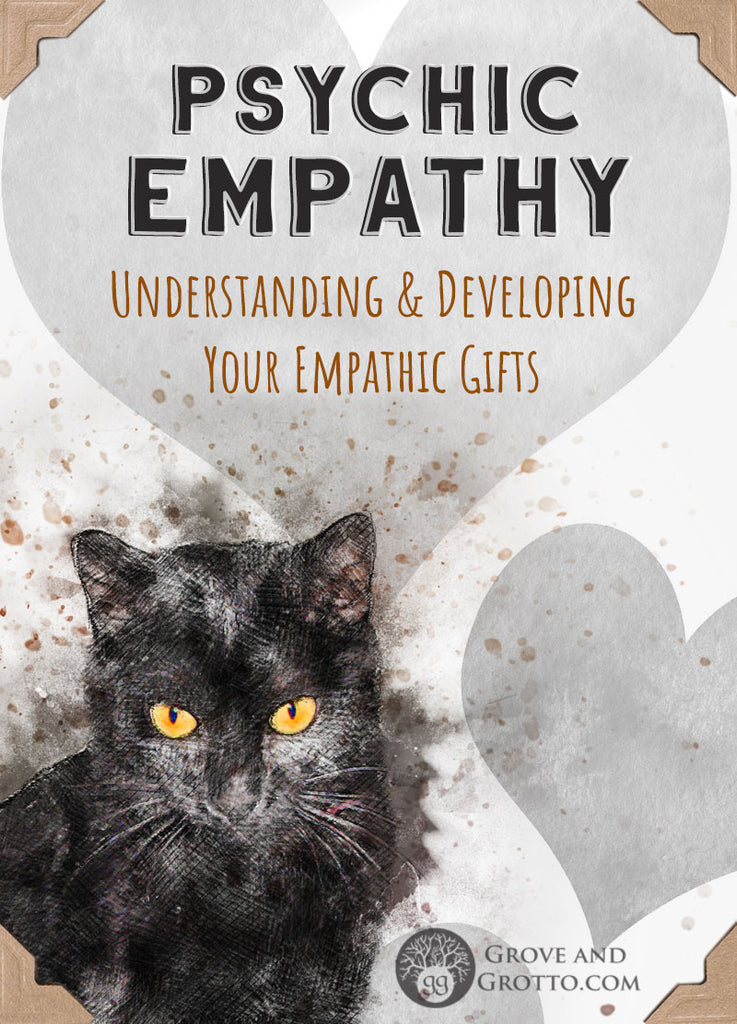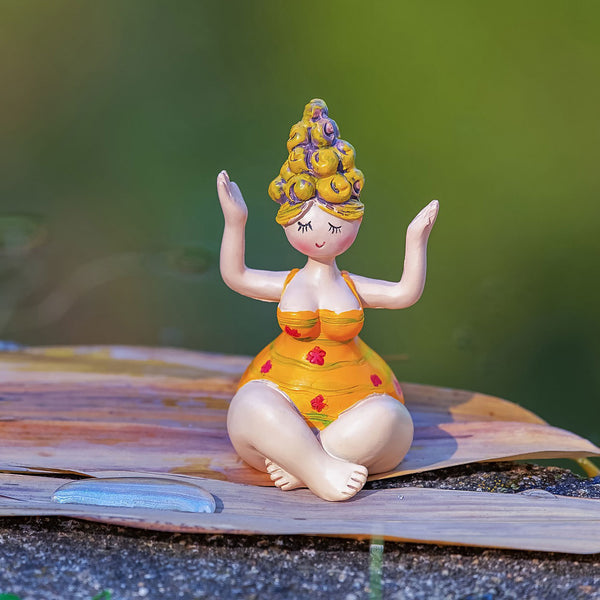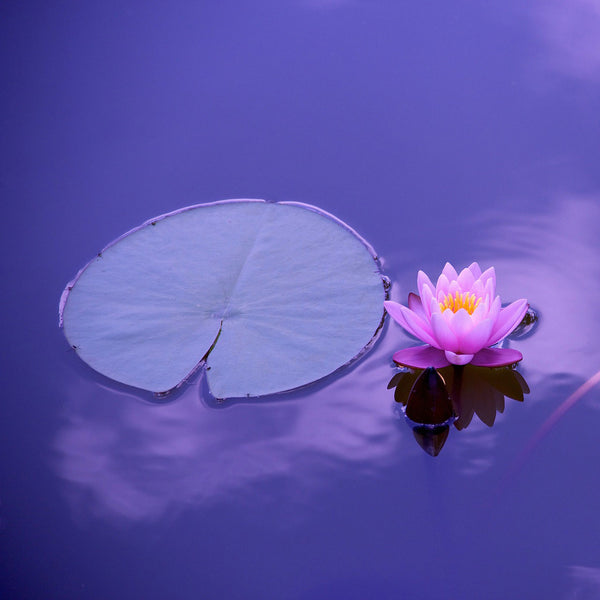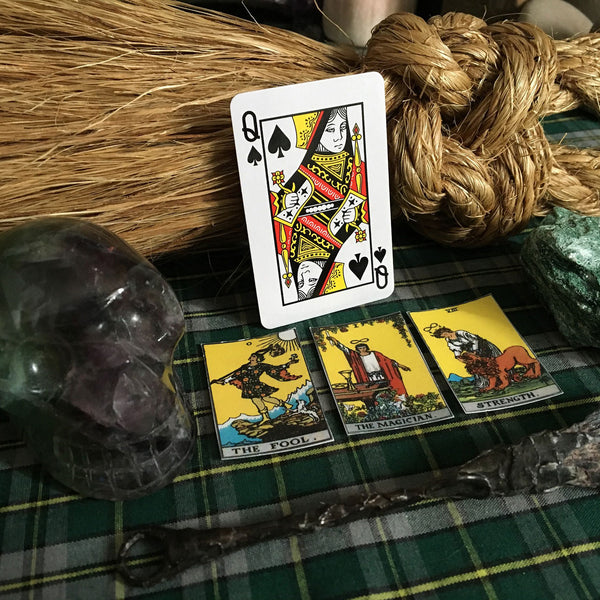
Empathy: It may be the most common of all psychic experiences—so common that it often seems perfectly ordinary. Have you ever “caught” a bad mood from a coworker as if it were a cold? Have you ever been swept up in the excitement of a sporting event, yelling and cheering, even though you didn’t really care about the outcome? If so, then you’ve experienced the transfer of emotional energy known as empathy.
Is empathy really a psychic ability?
As social creatures, most humans have a high degree of empathy. In the language of psychology, empathy simply means we can recognize emotions in other members of our species and tend to respond to those emotions in kind. Empathy can also be observed in social and emotionally perceptive animals like dogs, horses, and elephants.
In humans and animals, empathy probably evolved as a way to maintain group bonds and keep us safe from danger. Brain science researchers are fascinated with empathy and have done piles of research to discover why some people experience it strongly, and others seemingly not at all. And we’re getting there. “Mirror neurons”—neurons that fire in the brain when an action is observed as well as when it is performed—go along way toward explaining why humans experience empathy.
So…is empathy a psychic ability? A lot of New Age-y, pop psychology fluff writers like to hedge on this question. But as a garden-variety occultist with no letters after my name, I’m going to come down firmly on the side of “yup.” Spiritual people know that material science can explain a lot of our experiences with empathy—but not all of them.
Psychic empathy has nothing to do with observing facial expressions, tone of voice, or body language. For example, that feeling in your gut that a friend has bad news in the moment just before you pick up the phone. Or walking into a room minutes after a fight has occurred and feeling an immediate shift in your mood. These experiences point to the truth of the vibrational theories that have underpinned esoteric practices for centuries.
Everything has energy, and these energies are constantly interacting with each other. A psychic empath is someone who is more affected than normal by this invisible external energy.
How do I know if I am an empath?
Empaths report many of the same traits and experiences: Picking up emotions from friends and strangers. Being told they are “too sensitive” or “too emotional”. Knowing when someone isn’t happy or isn’t being truthful. Feeling anxious in crowds. Being alternately emotionally empty and overwhelmed by emotions.
If you’re wondering whether you are an empath, the answer is probably yes! It’s my conviction that most people experience psychic empathy, although some people are more sensitive to emotional vibes than others.
As any empath will tell you, empathy is not always fun. Empaths often pick up on mild to moderate negative emotions that are streaming in from other people: Frustration, fear, regret, shame, and anger. Empaths can suffer from mood swings as their emotional environment constantly shifts. Empathy is most stressful when you’re near other people, but it’s possible for psychic empaths to pick up on emotions even at a distance.
Empathy can coincide with (and is often confused with) social anxiety. And no wonder: It’s unsettling to walk out of the house feeling fabulous one minute, and then fall into a deep funk because someone smacked you with a sadness bomb.
But it doesn’t have to be that way, you feel me? (Heehee, empath joke!) In this article, I’ll share seven of my best coping strategies for managing psychic empathy.
Learn the art of grounding, centering, and shielding.

Centering, grounding, and shielding are ways of manipulating your own energy body to produce various (positive) effects. They are most often accomplished through visualization. These terms contain a lot of information, and everyone uses them slightly differently, but I’ll do my best quick rundown of what they basically mean:
Centering: To center is to quiet external stimuli and become aware of your physical and energetic bodies. It’s often the first step in preparing for meditation, prayer, or spellwork. When you’re centered, you feel focused and secure. More to the point, you’re aware of what energetic “stuff” is yours and what isn’t.
Grounding: To ground is to establish a connection to Earth energy or another primal energy stream outside of oneself. When you’re grounded, energy can easily enter and leave your body as you will it. You have access to all the energy you need—but not too much—and a release valve for the stuff that you don’t want to retain.
Shielding: To shield is to manipulate your outer energy field to control how it interacts with the outside world. Shield comes in all different shapes, sizes, and functions. Many experienced empaths prefer to maintain a semi-permeable shield. With selectively open shields, you’re not sealed off from the world, but not being constantly bombarded, either.
Shielding, grounding, and centering can be performed separately or together, but they are all interrelated. (And there is some overlap in how they’re defined.) This cluster of energetic practices can be daunting to learn at first, but with practice they will become second nature. It’s worth learning how. Empathy is a psychic/energetic phenomenon, and psychic/energetic solutions are one of the most direct ways to manage it.
Choose your friends (and lovers) carefully.

Being an empath means that you are more likely than others to encounter people who are angry, needy, depressive, dependent, and just emotionally screwed up. Why? Distressed and unbalanced people are attracted to empaths because the empath naturally absorbs some of the negative crud they are spewing out there. That’s very convenient for them…less good for the empath.
If you’re around someone who leaves you feeling drained or unhappy, ask: Why do I feel this way? Why does this person want to be my friend? Is this relationship serving both of us, or only one person?
Boundaries are important for everyone—but especially for empaths, who tend to slip into the pattern of becoming emotional providers. You’ve probably heard all this before, but I’ll say it again: You can’t care for others if you don’t first care for yourself. It’s possible to be loving and kind at a distance. Good fences make good neighbors. “No” is a complete sentence.
Speaking of “no,” empaths also need to be careful with physical touch. Touch is one of the ways that emotional energy can be transferred most easily, so reserve physical contact for people who you love and trust.
Embrace the positive.

While being an empath can sometimes be a burden or source of stress, it comes with a bunch of hidden superpowers:
Empaths are great listeners. They have the ability to listen not only to the words that are spoken but the feelings behind them—and often, the unspoken words as well. Empaths also tend to possess a high level of emotional intelligence and a caring disposition. For these reasons, empaths make loyal and generous friends.
Empaths are amazingly good at picking up on subtle emotional signals. You can use this secret sense to steer clear of drama, navigate complex social situations, and even get ahead in business. (Hey, if you’re going to deal with challenges of being an empath, you might as well scoop up some of the advantages too!)
Some believe that empaths are souls that have been called upon to raise the frequency of human beings globally by fostering communication and understanding. If that’s your mission, may you go forth and fulfill it! Just don’t let it erode you in the process.
Which bring us to:
Practice good emotional hygiene.

If being an empath is like being a sponge, you gotta remember to squeeze out that sponge occasionally. Maybe put in the microwave for a couple seconds if it picked up something really nasty.
A daily self-care routine would improve most people's lives, but for empaths it’s an absolute necessity. So make time: Meditate for ten minutes a day. Or five. Go for solo walks. Talk to a friend you can vent to for a change. A beneficial practice for many empaths is keeping a journal—it aids in sorting out which emotions are yours, and where the rest are coming from.
Doing emotional house-cleaning will also improve the quality of your interactions with friends and strangers, I guarantee it. As we often hear in the realm of magick, like attracts like.
You know that beacon over your head, the one that says, “Hi, I’m an empath, please dump all your emotional junk on me?” It doesn’t dim just because you’re carrying around your own emotional junk—if anything, it shines brighter. Misery loves company, and other people will use their empathy to tune into your crappy mood and potentially amplify it. When you’re feeling stable and balanced, you can make better choices about who and what enters your energy field.
Partner with animals, plants, and stones.

Empaths intuitively understand that they are never truly alone. Just as some beings can make your life more difficult by swamping you with energy, some beings can help you shake off the excess and reconnect with your center. When people are too much to handle, try turning to plants, animals, and minerals and make them your magickal partners.
Spending time in nature is one of the easiest ways to fix your energy. Go outside! Make contact with a tree, a body of water, or even a potted plant if that’s all you’ve got.
Animal companions can help you smooth out your energy when it’s been frazzled by interference. Cats, dogs, and human children are often seen taking on this role lovingly and willingly.
Certain stones and crystals can also be helpful in transmuting and re-directing empathic impressions. A piece of crystal jewelry or a smooth stone can help deflect or absorb energy until you’re ready to deal with it.
All beings (including plants and mineral beings) have consciousness, and any of them can become an ally in managing psychic empathy. As silly as it may sound, be sure to thank any plant, stone, or creature that assists you in circulating and balancing life force energy.
Work with your other psychic senses.

Are you interested in developing your psychic abilities? I’ve often observed that psychic empathy can be a gateway to other psychic talents. If you regularly gather emotional energy from others—then congratulations! You already know what it’s like to receive non-sensory or extra-sensory information.
Psychic empathy is related to clairsentience, the “just knowing” or “gut feeling.” Empaths and clairsentients both tend to receive psychic information in the heart, solar plexus, and belly area. Pay extra attention to those parts of the body—what they are telling you, and what type of care they need.
One of the most frustrating things for beginner empaths is not knowing where all the feelings are coming from. Empathic impressions are usually non-verbal and non-visual—which means it’s harder for our conscious mind to process them. Harder…but not impossible. Practice!
The next time you receive emotional energy that doesn’t belong to you, close your eyes and see if you can pinpoint the source. Where in your body do you feel it? Does it have a sound, texture, or color? Can you manipulate or change the energy? Are you able to identify a direction that it’s coming from (or even a specific person)? Honing these skills will help you block or deflect unwanted impressions when you’re out in public.
You can also work on your psychic skills while in the presence of a friend or loved one. When you notice that you are empathically “tuned in” to their energy, try reaching out and seeing what other information you can gather. Do you receive any visual images? Any thoughts, sounds, or sensations? With a little practice, using your empathic gift can help cultivate latent clairvoyant or clairaudient abilities. Many empaths also excel at psychic healing due to their natural sensitivities to energy.
Don’t give away your power.

“I match energy, so YOU decide how we’re gonna act.” Wait…what? I’ve spotted this garbage meme-ing its way around spiritual communities. It’s a cute T-shirt (I guess), but the idea it expresses goes against all my training as a Witch…hell, as an adult human being.
Don’t give away your power. In other words, never let anybody be directly responsible for how you feel—much less how you act.
I wish that “I’m an empath” could be an empowering statement for more people, but all too often, it’s used as an excuse. Psychic empathy is very real, but it’s not a good reason to engage in erratic emotional behavior or blame other people for your state of mind.
If you choose to wear that “E” on your lapel, there are three very important things to remember. One: Psychic empathy is very common. It’s special, sure, but not unusual—imagine if every empathic person acted like a basket case? Two: It’s your responsibility to manage your gift. There’s a big difference between the psychically gifted person who’s tossed about like a leaf in the wind, and the one who has learned to feel all the breezes and come to useful conclusions about the weather.
Finally: The stories we tell ourselves matter. (Especially the stories we tell ourselves about ourselves.) If you tell yourself that you can’t have close friends or go out in public because you’re too empathic to function, it’s likely to become a self-fulfilling prophecy and your life will be poorer for it.
As an empath, your challenge is to practice openness and compassion without cultivating weakness. May you always be strong and thrive—the world needs you!
Thank you for reading and sharing. Please visit the archive for more articles.
